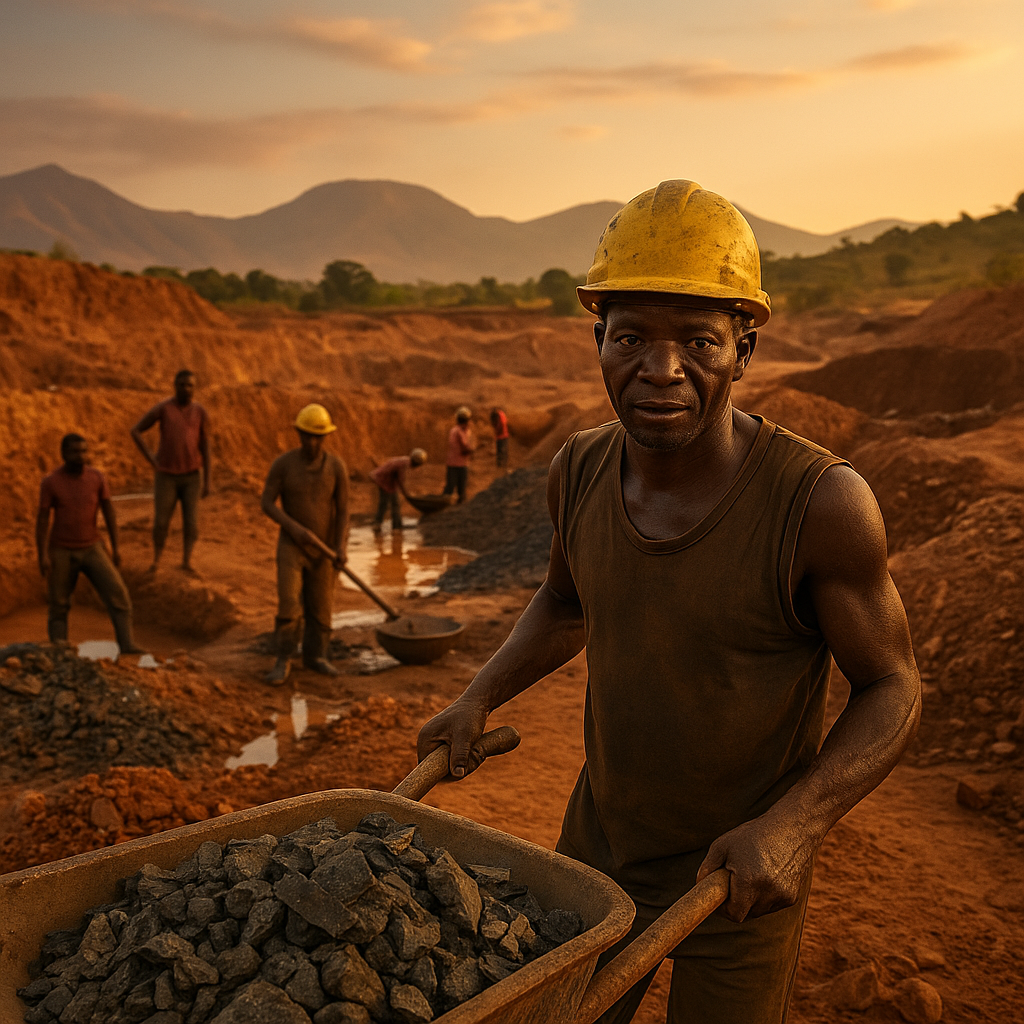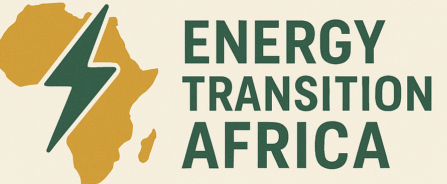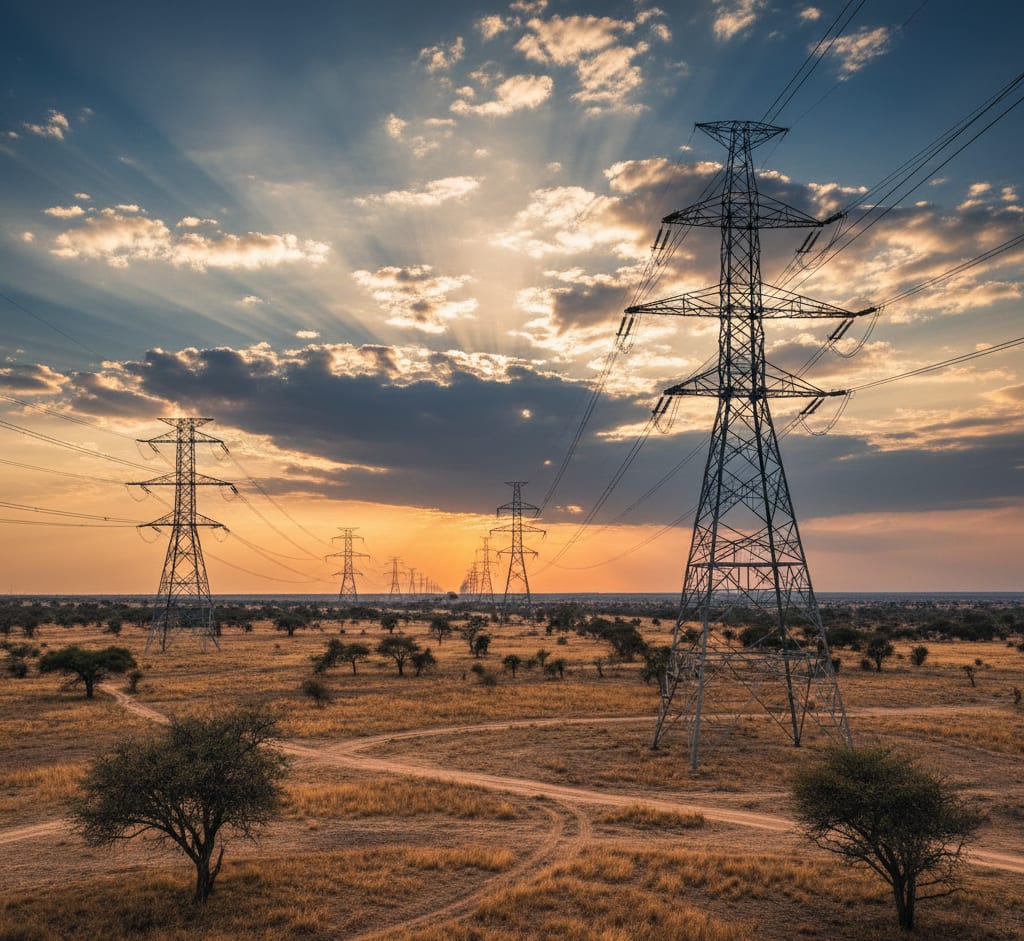Green Gold Rush or Resource Grab? Inside Africa's Critical Minerals Boom

Under the midday sun in Kolwezi, in the southeastern stretch of the Democratic Republic of Congo, Lucien, a 26-year-old father of three, kneels in a shallow mine pit, scraping cobalt-rich soil with a rudimentary shovel. The dust chokes. His hands are calloused. But he works on, knowing the world needs this cobalt to power the batteries of electric vehicles.
This is the new face of Africa’s extractive economy: a continent whose critical minerals, from cobalt and lithium to rare earths and graphite, have become central to the global energy transition. However, while billions are being pledged for climate goals and clean technology, communities like Lucien’s ask: Who is this transition really for?
The Rise of Critical Minerals in Africa
In recent years, Africa has emerged as a significant player in the global pursuit of critical minerals. According to the International Energy Agency (IEA), demand for minerals like cobalt, lithium and copper is expected to quadruple by 2040. Africa holds vast reserves: the DRC supplies over 70% of the world’s cobalt; Zimbabwe and Namibia are lithium hotspots; while South Africa and Madagascar are rich in vanadium and graphite.
This week, a $150 million investment by KoBold Metals, backed by billionaires such as Bill Gates and Jeff Bezos, in a Zambian copper and cobalt project sent ripples through financial markets. Their AI-powered mining approach is being hailed as revolutionary. But to communities, these big-ticket deals often feel like déjà vu, history repeating itself under a green banner.
Who Holds the Power?
Foreign investors, multinational corporations and tech giants are lining up. The EU’s Critical Raw Materials Act and the US Inflation Reduction Act have created an arms race to secure supply chains, often bypassing African agency.
“Everyone wants our minerals but on their own terms,” says Dr. Rehema Mwangi, a Kenyan policy analyst. “What we are seeing is a green scramble, this time for cobalt, lithium and graphite.”
Critical minerals in Africa are now central to new forms of geopolitical power. China dominates midstream processing, the US is pushing partnerships, and the EU is dangling trade preferences. Yet, African governments often remain price takers.
The Shift Toward Value Addition
The tide is turning. From Zimbabwe’s 2023 ban on raw lithium exports to Ghana’s new lithium policy, African countries are asserting their right to process minerals locally and capture more value.
“We won’t repeat the mistakes of exporting raw gold and cocoa without local industries,” Ghana’s Minister of Lands and Natural Resources declared last month. EnergyTransitionAfrica covered this in our post: “Beyond Raw Minerals: Can Africa Benefit from Its Critical Mineral Wealth?”
This policy shift is critical, but it is not without pushback. Mining firms claim it raises costs. Some warn of capital flight. And in places like Sierra Leone, where new royalty structures are being negotiated, tensions between community benefits and investor interests are intensifying.
Community Impacts: From Kolwezi to Bikita
In Kolwezi, artisanal miners like Lucien continue to work under unsafe conditions, often selling their finds to unregulated traders. Formalisation efforts remain slow. Meanwhile, in Bikita, Zimbabwe, residents were recently displaced to make way for a Chinese-owned lithium processing plant. Many report receiving inadequate compensation.
“These are our lands, our rivers, our future. But decisions are made in boardrooms far away,” says Thoko Moyo, a community organiser.
In Nigeria, where recent explorations for lithium in Nasarawa and Ekiti States have spurred excitement, civil society voices caution against repeating the Niger Delta oil model, riches for few, pollution for many.
Our blog has consistently raised these concerns. See our previous post: “Africa’s New Extractive Era: Will Communities Be Left Behind Again?”
Are We Ready for the Green Boom?
The critical minerals boom in Africa presents both opportunity and risk. On one hand, it could be the engine of industrialisation, job creation and green technology leadership. On the other hand, it could deepen extractive dependency and widen inequality.
A 2024 African Development Bank report urges countries to build regional processing hubs and invest in vocational skills tied to mineral value chains. Yet funding for infrastructure, energy access and environmental safeguards remains patchy.
In the DRC, despite being the cobalt capital of the world, nearly 70% of the population lacks electricity. Communities digging up the materials for Tesla batteries still charge their phones at public kiosks.
Civil Society: The Watchdogs of the Transition
Groups like PWYP, AFRODAD, and Natural Resource Governance Institute are pushing for transparency in contracts, local benefit-sharing, and women’s inclusion in mining governance.
“We cannot repeat the mistakes of the oil era,” says Vincent Egoro, a regional civil society coordinator. “The green economy must not become a new frontier for exclusion.”
African CSOs are also calling on climate funders to link green financing to mineral governance reforms. If Africa’s minerals are essential for the world’s clean transition, then resource justice must be a global priority.
Conclusion: From Extraction to Empowerment
Africa stands at the threshold of a new chapter. The world wants its minerals. The climate needs its cobalt, lithium and rare earths. But for this to be a fair exchange, African governments, communities, and civil society must shape the terms.
Investors may bring AI tools and capital, but real value lies in local ownership, processing capacity and community development. The critical minerals in Africa must power not only global decarbonisation, but also African dignity, jobs and justice.
Until then, miners like Lucien will keep digging. But the question remains: who gets to write Africa’s green story?



